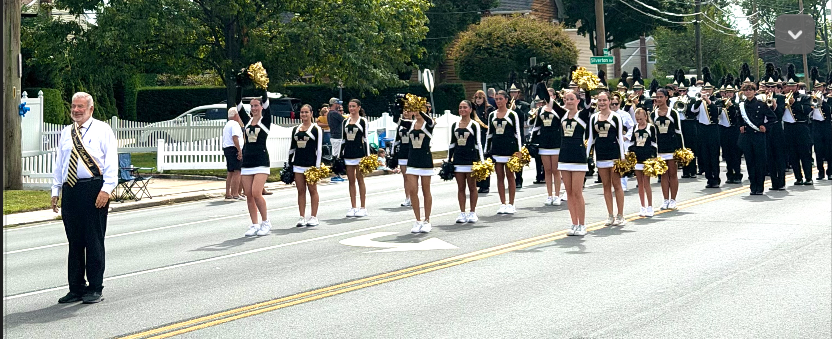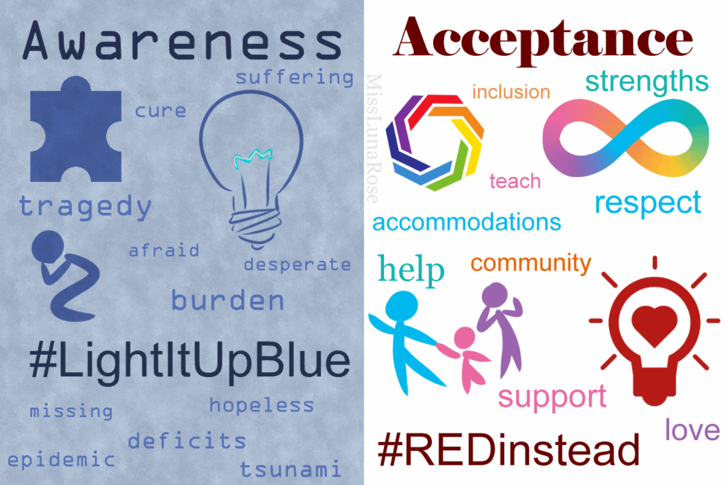Autism Speaks: Helping or Harming Autistic People?
October 30, 2019
On the surface, Autism Speaks might look like an organization with a very sweet message – they seem to know the struggles autistic individuals face and intend to help them, but the way they go about it doesn’t quite sit well with those who actually are autistic.
Amy Sequenzia, an autistic poet and journalist for the Autistic Women & Nonbinary Network, criticized Autism Speaks’ methods of research and how they spend the money that is raised towards them. “I know they don’t like Autistics. I know they use most of their resources to convince people that the world would be a better place without us, and actually using the money to fund research that can make our extinction possible,” stated Sequenzia in an article she wrote, citing Autism Speaks’ “Autism Genome Project” as her main source of information. “Disguised as ‘research’ about babies and siblings, the investments seek to find a genetic marker that will allow parents to terminate an unwanted pregnancy. Other ‘researches’ use the term ‘treatment’ and asserts that who we are is not good enough, that we need ‘early interventions’ to try to look ‘normal’ and be valued.”
It is clear that Autism Speaks’ “research” methods are not intended to increase acceptance of autistic individuals, which is what most autistic people desire, but rather to find methods to create a future where few people are affected by autism and actually increase the stigma associated with autism. Autism Speaks treats autism, a mental condition the majority of autistic people are born with or develop naturally, as if it is a curable disease, and have reportedly said, as per numerous blog posts including “I’m Not ‘High-Functioning’” by autistic blogger Miss Luna Rose, that all autism leads to suffering, and those who do not suffer do not have autism – a clearly discriminatory statement.
Their ads and other promotional materials have also been criticized by the autistic community as “condescending,” “infantilizing” and “dehumanizing.” They tend to include many hasty generalizations about autistic people, including that they are all unable to make eye contact, cannot do things independently that neurotypical people are capable of, and that they are helpless and voiceless. One ad for Autism Speaks featured a virtual child “that avoids eye contact with you, to show how “frustrating” it is to be an autistic kid’s parent whose child is physically incapable of looking in your eyes. As with everything Autism Speaks does, this totally ignores the struggle that the autistic child faces,” said Meredith Espinosa in an article written for Medium. The ad actually promotes violating the boundaries of autistic people by forcing them to make eye contact, when in reality, they avoid eye contact because it can feel awkward or frightening to them. Thus, this avoidance of eye contact actually helps autistic people have pleasant conversations. Flannery Sullivan, a mother and author of the blog The Connor Chronicles, created a post called “Autism Speaks Does Not Speak For Us – THIS is Autism” about her son Connor, who is autistic but can tie his shoes, brush his teeth, and make eye contact all by himself, and shows great amounts of empathy. Autism’s effects vary greatly from person to person- something Autism Speaks does not appear to touch upon on their website, in any of their PSAs, or in their research.
Part of the reason why Autism Speaks isn’t that well-liked among autistic people and their families is because few people running the company are actually autistic. The Autism Speaks board of directors, which consists of 26 people, is also notable for only having two autistic people on it – Valerie Paradiz and Stephen Mark Shore. 19 of those 26 represent major corporations, “including current and former CEOs and senior executives of PayPal, Samsung, CBS, Goldman Sachs, White Castle, Viacom, American Express, FX Networks, Virgin Mobile, SiriusXM, and Sprint” as per an infographic put out in 2018 by the Autistic Self Advocacy Network.
The majority of the money donated to Autism Speaks is not put towards helping autistic people and their families – rather, it is mostly used to fund their “research.” According to the Autistic Self Advocacy Network infographic, “only 1.6% of Autism Speaks’ budget goes towards the “Family Service” grants that are the organization’s means of funding services. Autism Speaks spends 10x as much—16%—on fundraising.” The author of the blog Mosaic of Minds, whose brother has Asperger’s Syndrome, wrote an open letter to Autism Speaks criticizing their distribution of funds. “As you are doubtless aware, Autism Speaks does not directly provide services, apart from the informational kits on their website. They simply award grants to local service providers. So, if one donates $100 to Autism Speaks, $3 will go towards directly helping autistic people and their families. But if one were to donate $100 to a charity that provides services, close to $100 would go towards serving this population. Thus, Autism Speaks actually takes money away from the local communities that provide services to autistic children and adults every day.”
In this day and age, autism acceptance is more important than autism awareness. Autism acceptance is helping autistic individuals feel more included in society and advocating for their civil rights – rather than continuing to distance them from the rest of the world like Autism Speaks does. The Autistic Self-Advocacy Network (ASAN), the Autism Society of America, Autism Women’s Network (AWN), National Autistic Society of the UK, and the Autism Science Foundation—which does and funds scientific research which is more intended to discover the causes of autism and help create more accepting environments for autistic individuals and their families whilst supporting their needs—are some organizations that support autism acceptance rather than autism awareness, and have made leaps and bounds towards actually supporting autistic people and their families.















